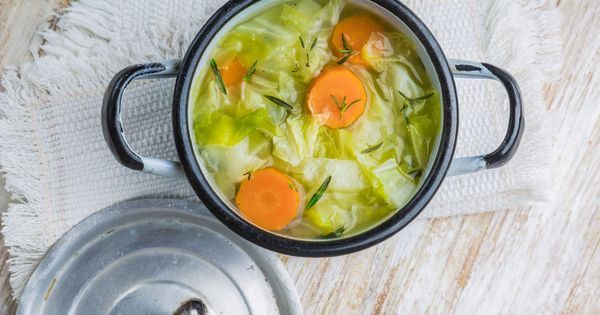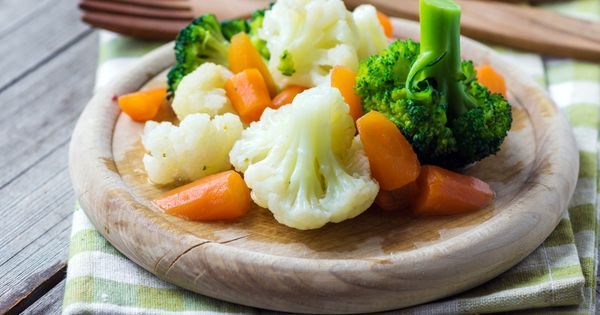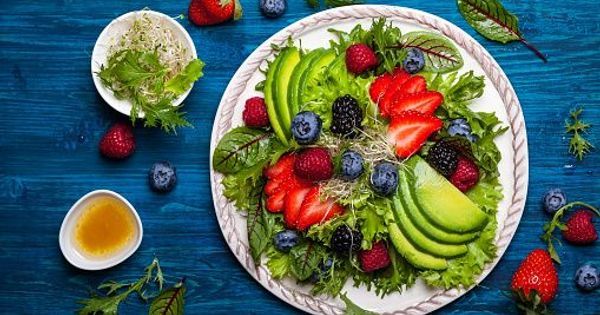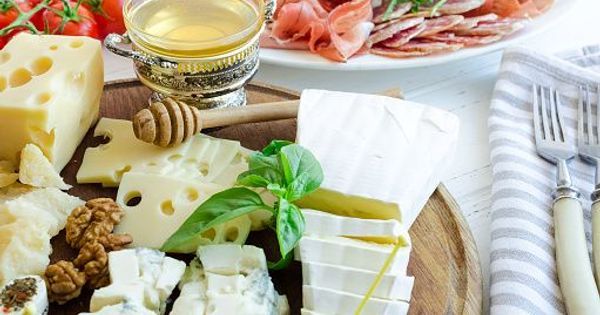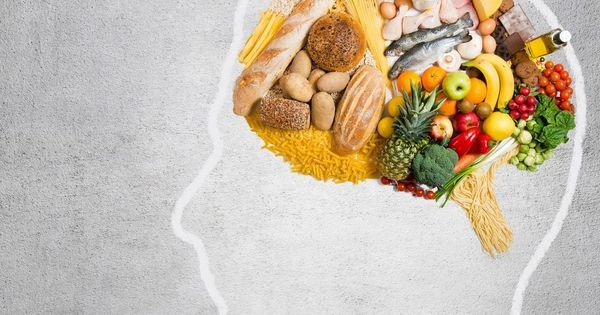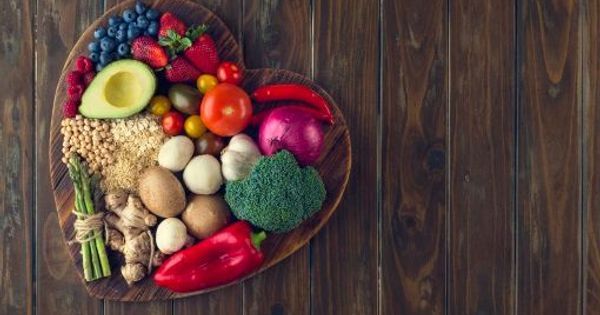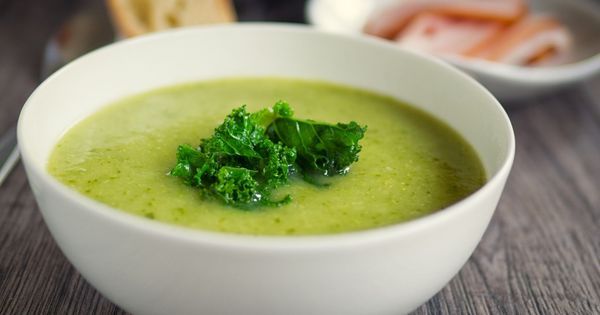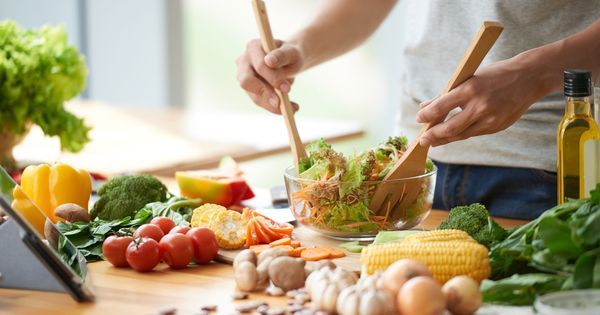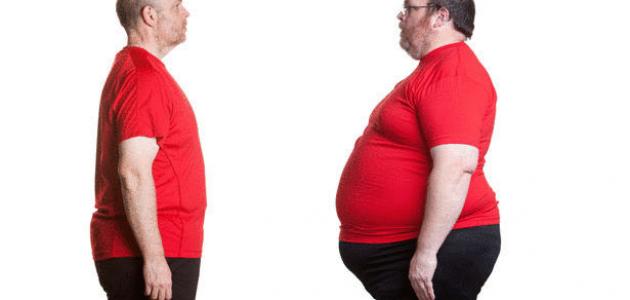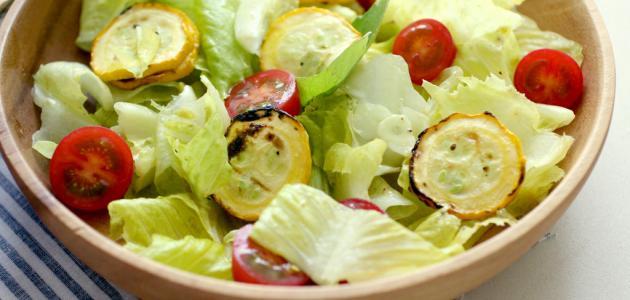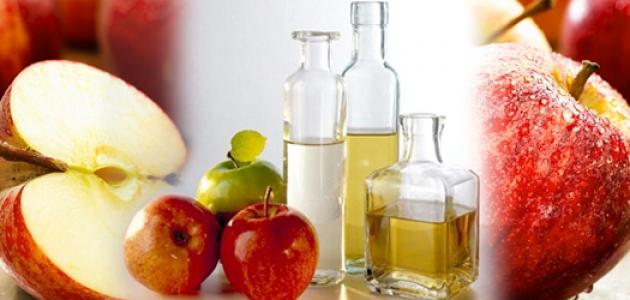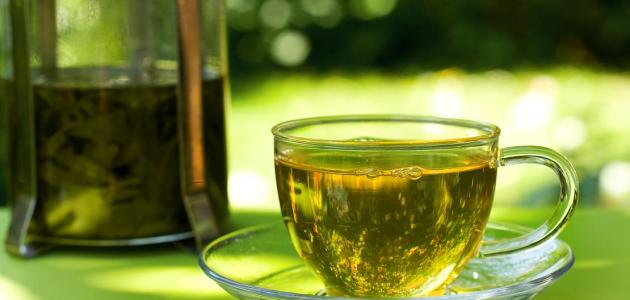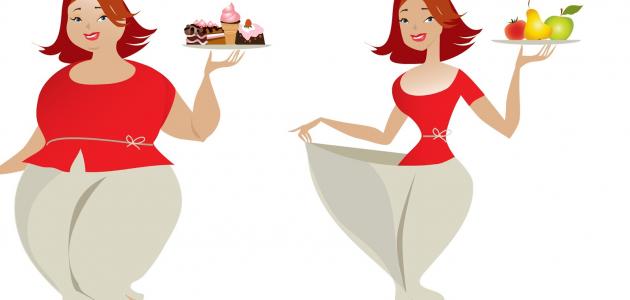The cabbage soup diet is one of the very low calories express diets. Based on soup, it lacks many nutrients. It can cause digestive problems and even serious health problems if followed for too long. It is strongly advised not to continue it beyond the recommended seven days.
Plan definition
This diet is based on a potato-free soup recipe, including cabbage and other vegetables: tomato, pepper, carrot, celery, garlic, onion. It is presented as an express weight loss diet, allowing you to lose up to 5 pounds in 7 days.
How the regime works, main principles
This is a short diet that lasts for a week. Once the 7 days of restriction have ended, it is advisable to stop for at least 1 to 2 weeks, before if necessary, to resume the diet again for 7 days.
Each meal, breakfast, lunch, dinner, and possibly a snack, begins with a bowl of soup. The latter, which is preferable to cook at home, should not contain any fat. It can be seasoned with salt, pepper or other spices, herbs or a bouillon cube. It should not be mixed.
The soup can be supplemented with other foods, fruits, vegetables, skimmed milk, etc., which vary each day according to a precise list.
What can I eat?
Recommended foods
Besides cabbage soup, you can eat:
- Day 1: fruit
- Day 2: cooked vegetables without fat
- Day 3: Fruits and vegetables without fat
- Day 4: bananas (maximum 3 during the day) and skimmed milk
- Day 5: cooked beef without fat (or skinless poultry) and tomatoes
- Day 6: beef or veal or skinless poultry and vegetables, all without fat
- Day 7: brown rice, fruit juice without added sugars, and vegetables without fat.
The recommended drinks are water, coffee or tea without sugar, fruit juices without added sugars (only on day 7).
Prohibited foods
These are all foods except recommended foods. Especially :
- Fats: oils, butter, fresh cream, etc.
- Whole milk, cheeses.
- Cooked meats.
- The dried fruit.
- Bread, breakfast cereals, pasta, white rice.
- Sweet products: sugar, jam, chocolate, cookies.
- Alcoholic drinks.
Ease of following this diet
Cost
This plan is accessible to all budgets.
Cabbage is not an expensive vegetable. You can prepare economical soup by favoring seasonal vegetables, which are the least expensive.
The only high-priced foods are beef or veal, which, however, are only available 2 days a week and can be replaced by cheaper poultry.
Coaching effectiveness
Although the number of foods allowed is limited, the diet does not cause fatigue since it only lasts a week.
It is not necessary to weigh the food, which limits the constraints.
Since the amount of soup is not limited, there is no reason to be hungry. Several observational studies, carried out in France, the United States, and Japan, show that regular consumers of soup are thinner than non-consumers or occasional consumers. Researchers specializing in eating behavior, have shown through work carried out with volunteers, that the energy intake of a meal starting with soup is lower than that of a meal without soup. Energy intake may even be reduced at the next meal. Thanks to its richness in water and fiber, the soup improves both satiety (feeling of having a full stomach, which helps to eat less of the other foods that make up the meal) and satiety (no hunger until at the next meal).
The cabbage soup diet can cause digestive disorders: bloating, gas, indigestible sugars capable of being fermented in the colon.
The diet is not recommended for people with irritable bowel syndrome.
Exercises
It is prudent not to combine physical exercise with the cabbage soup diet. Why? It is one of the diets examined by the National Agency for Food, Environmental, and Occupational Health Safety (ANSES) as part of a report on the risks and benefits of weight loss diets8. Since its daily energy intake is estimated at 600 kcal, it is classified among very low-calorie diets. ANSES recalls the risks caused by the association of this type of diet with physical activity, especially among amateur athletes or sedentary people:
- Risk of hypoglycemia (excessive drop in blood sugar levels, due to low energy and carbohydrate intake from the diet) or vagal discomfort (due to insufficient oxygenation of the brain).
- Risk of cardiovascular accident, in people with at least one cardiovascular risk factor: diabetes, high blood pressure, smoking, etc. In this case, resuming physical activity must therefore be preceded by a medical consultation and 'a stress test performed by a cardiologist.
Is this diet dangerous for health?
Cardiovascular risk
Very low-calorie diets, including the cabbage soup diet, are associated with an increased risk of sudden death, linked to heart rhythm disturbances. This risk exists especially when the restriction lasts too long and has time to weaken the heart muscle.
Diets very low in lipids (fats), such as the cabbage soup diet, would have a negative effect on the lipid balance: they seem to decrease the blood level of HDL-cholesterol ("good cholesterol") and increase the level of triglycerides. They would also increase the small molecules of LDL-cholesterol ("bad cholesterol"), which are particularly atherogenic (are easily deposited in the arteries).
Blood sugar risk
The cabbage soup diet can cause hypoglycemia (excessive drops in blood sugar levels) due to its low energy and carbohydrate intake. It is not recommended in case of diabetes.
Increased risk of gallstone disease
Several studies show an increased risk of gallstones as a result of a very low-calorie diet. As bile requirements decrease when lipid intake is restricted, the latter would stagnate in the gallbladder, which would promote the formation of stones. Very low-calorie diets could also cause mild inflammation of the liver.
Given its health consequences, it is not advisable to continue the cabbage soup diet beyond 7 days or to follow it regularly, even interspersed with less strict weeks.
The cabbage soup diet is very low in calories and lacks protein, these two restrictions associated with leading to significant muscle loss.
What type of menus does this diet offer?
Here is an example of a typical menu:
Breakfast :
- 1 bowl of cabbage soup
- 1 seasonal fruit (days 1 and 3) or 1 banana (day 4) or 1 bowl of skimmed milk (day 4) or 1 glass of fruit juice (day 7).
At lunch :
- 1 bowl of cabbage soup.
- 1 plate of vegetables without fat (days 2, 3, 6, and 7) or tomatoes (day 5) or 1 portion of meat without fat (days 5 or 6) or 1 plate of brown rice without fat (day 7) ).
- 1 seasonal fruit (day 1) or 1 banana (day 4).
At snack :
- 1 bowl of cabbage soup
- 1 seasonal fruit (days 1 and 3) or 1 banana (day 4) or 1 bowl of skimmed milk (day 4) or 1 glass of fruit juice (day 7).
At dinner :
- 1 bowl of cabbage soup
- 1 plate of vegetables without fat (days 2, 3, 6, and 7) or tomatoes (day 5) or 1 portion of meat without fat (days 5 or 6) or 1 plate of brown rice without fat (day 7) ).
- 1 seasonal fruit (day 1) or 1 banana (day 4).
Benefits
- This diet requires eating a lot of vegetables, the consumption of which is often insufficient and makes it possible to increase the intake of fiber and several protective micronutrients: vitamin C, beta-carotene, polyphenols, and glucosinolates (sulfur compounds present in cabbage).
- Thanks to a high fiber intake, it improves intestinal transit. Rich in water and potassium, as long as the soup is not too salted, it has a diuretic action. For people who digest cabbage well, it can help deflate and is a kind of "detox diet".
- The promised weight loss of 5 kilos in one week is not necessarily kept, but Internet users who have tested the diet declare on forums that they have lost at least 3 kilos.
- The rapid weight loss obtained can encourage overweight people who have difficulty in losing weight. Beyond the first week, however, it is not recommended to continue the same type of diet.
Disadvantages of the diet
- Like all very restrictive diets, it can cause fatigue.
- The cabbage soup diet exposes you to the "yoyo effect".
